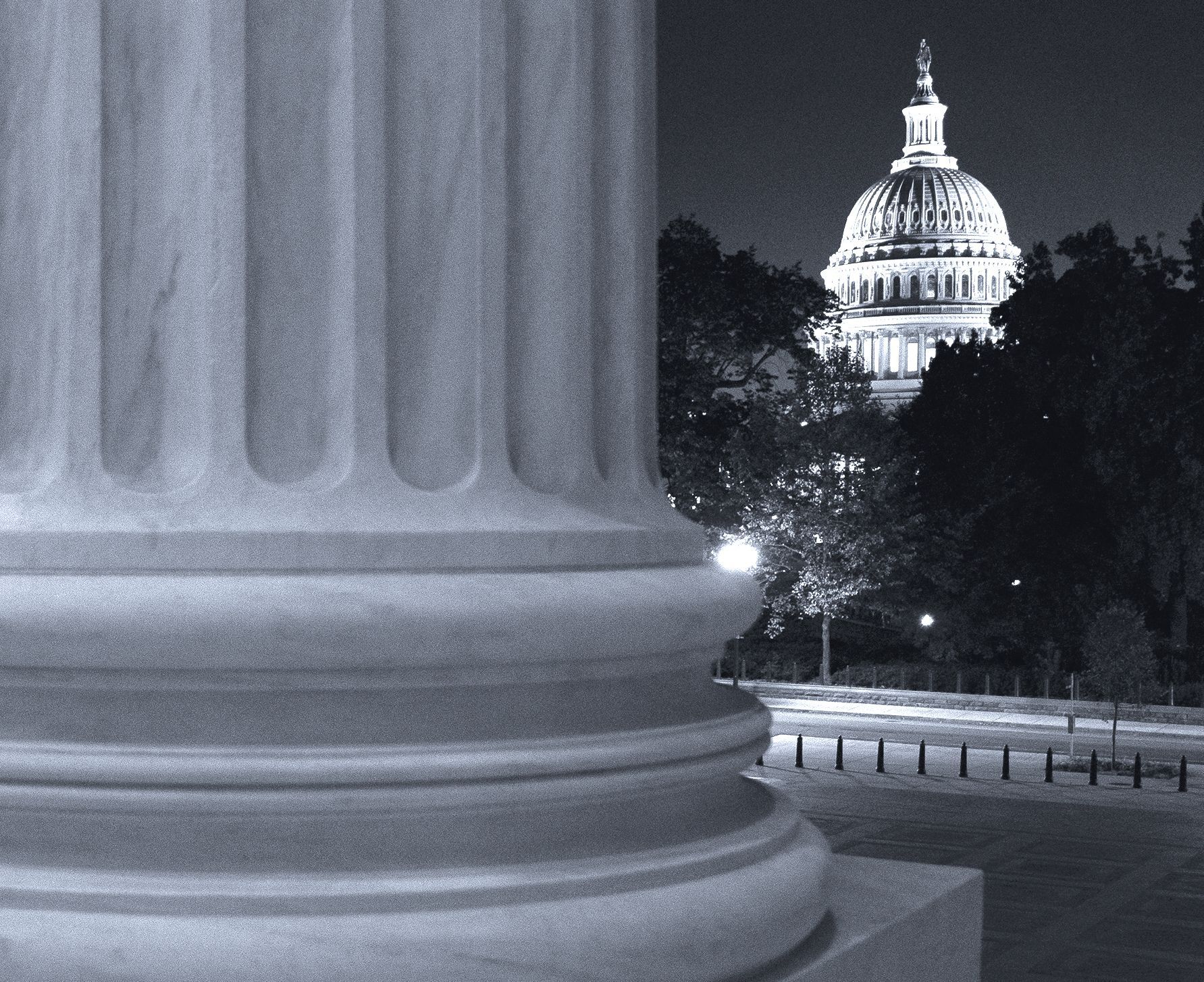
More than halfway through year one of the Biden administration, the Department of Justice (DOJ) and Federal Trade Commission (FTC) are flexing their muscles and confirming the early consensus view that antitrust risk would be a significant consideration for companies contemplating strategic transactions. At the same time, as the agencies themselves have noted, M&A is at an all-time high. This means that assessment of risk and mitigation strategies continue to be essential for any firm considering a transaction. We highlight below the takeaways from the latest developments at the U.S. antitrust agencies.
Tech, Tech, and More Tech
With President Biden's recent appointment of Jonathan Kanter (longtime Google adversary representing Microsoft, Yelp, and Fox News) as Assistant Attorney General for the Antitrust Division and Lina Khan (the co-author of the House's report on "Big Tech") as Chair of the FTC, the antitrust agencies' heightened focus on tech no doubt will continue throughout this administration. The President's Executive Order on Promoting Competition in the American Economy certainly reinforced this priority by encouraging "leading antitrust agencies to focus enforcement efforts on problems in key markets," including the tech sector. The agencies are acting on that mandate. For example, the FTC recently launched an in-depth investigation into the Uber/Gopuff commercial partnership at the same time it is also investigating Uber's acquisition of Drizly.
Tech companies considering strategic acquisitions should assess whether any contemplated transaction would significantly increase the accumulation of data, impact user privacy, and, as is explained below, involve the acquisition of a nascent but potentially disruptive competitor. Companies should also consider whether engaging in M&A could trigger an interest, and possibly an investigation, by the DOJ or FTC into a previously unchallenged merger. While an extreme example, the FTC's recent amended complaint against Facebook highlights the concern: the FTC's complaint seeks to unwind at least Facebook's years-ago-closed acquisitions of WhatsApp and Instagram.
Protecting Nascent Competition
The agencies continue to express concern regarding the acquisition of nascent competitors, and it looks as though the DOJ and FTC will scrutinize closely any disruptive competitor take-outs. President Biden's Executive Order called on the agencies to apply greater scrutiny to acquisitions of nascent competitors—that is, transactions involving the purchase of companies not presently competitive in the market or recent entrants into the market. Both the FTC and the DOJ—even before President Biden's appointees were in charge—recently challenged such acquisitions, including Billie/P&G (FTC with a 4-1 vote), Harry's/Edgewell (FTC with a 5-0 vote), and Visa/Plaid (DOJ). All resulted in the parties walking away from the proposed transactions. The trend continues with the FTC's 5-0 challenge of Illumina's acquisition of Grail.
Protecting Workers
The agencies are expanding their investigations to focus more closely on competition in labor markets and, since the appointment of Lina Khan as Chair of the FTC, have scrutinized the impact of mergers on the companies' employees. This may also become a priority at the DOJ, as Attorney General Merrick Garland has expressed interest in promoting competition in labor markets.1
While the DOJ already criminally prosecutes agreements not to "poach" employees, both agencies are looking into other labor-related horizontal restraints. For example, the President's Executive Order encourages the FTC to ban or limit non-competes, which, in the merger context, has led to inquiries into merging parties' existing employee agreements. This heightened focus on labor and employment issues should serve as a warning to companies that labor and employment issues will play a role in the merger review and may lead to collateral consequences.
Fixing Is Not Easy
Most transactions subjected to significant scrutiny (i.e., those deals that receive a "Second Request") are challenged in court, abandoned, or resolved via a settlement with the agencies to resolve their competitive concern. In the current environment, any settlement likely will require the divestiture of a stand-alone business to a strong and well-financed competitor. And even that might not be enough. Indeed, in suggesting that it might be better to block a problematic merger than try to fix it, the new Chair of the FTC has made clear that behavioral remedies "have often failed to prevent the merged entity from engaging in anticompetitive tactics," and even structural remedies (i.e., divestitures) may also "prove inadequate." As a result, companies must expect that any proposed divestiture will be scrutinized closely, vetted carefully with third parties, and required to be sufficiently robust to restore competition in the market. For its part, the DOJ recently rejected a settlement proposed in the Aon/Willis transaction, finding that the divestitures were insufficient. That deal was subsequently abandoned.
Additionally, companies must be aware that settlements with the FTC come with significant strings. Notably, as part of any divestiture settlement with the FTC, the commission, in a reversal of long-standing policy, will now require the acquiring company to provide the FTC with prior notice and approval of future transactions, even if such transactions do not meet the HSR thresholds. Thus, parties agreeing to consent decrees with the FTC must also consider that the agency will retain jurisdiction to review and approve all acquisitions going forward, even if such approval is not required under HSR regulations.
What Does This Mean for Companies Considering M&A?
The agencies' rhetoric suggests strongly that the next several years will prove to make M&A more difficult for many technology companies. Acquisitions of competitors, of potential competitors, and of firms in vertical relationships (e.g., manufacturer acquiring distributor) likely will face longer and more arduous reviews at the FTC and DOJ. In that light, companies considering M&A activity should:
- Consider Deal Certainty Carefully: An attractive premium is only truly attractive if a deal can close. Potential targets must be cognizant that antitrust risk could make any offer to acquire illusory.
- Ensure That the Acquisition Agreement Protects Your Interests: Sellers must be sure that the buyers will take the necessary steps to ensure their deals close (e.g., make divestitures, litigate, pay a break fee if the deal is blocked), and buyers must be aware that expansive divestiture demands could result in a remedy that frustrates the purpose of the deal or, worse, requires the divestiture of the buyer's own assets to get the deal closed in light of agency concerns.
- Plan for a Prolonged Review: The agencies also are demanding more time to complete their reviews. Anticipate reviews that last three months or more longer than in previous administrations. The FTC recently announced that its staff is overwhelmed with the volume of HSR notifications and that reviews are taking longer than normal as a result.
- Be Wary That the FTC May Conduct a Post-Close Review: On August 3, 2021, the FTC announced that given the volume of M&A activity, in some instances, the agency would continue its reviews beyond the time allotted under the HSR Act. Thus, a deal could conceivably receive clearance from the agencies, close, and subsequently be investigated and potentially subject to remedies or eventual FTC challenge.
For more information on antitrust enforcement under the Biden administration or any related matter, please contact Jamillia Ferris, Ben Labow or another member of Wilson Sonsini's antitrust and competition practice.
[1] Press Release, Dep’t of Just., Statement of Attorney General Merrick B. Garland on the Justice Department’s Implementation of the Executive Order on Promoting Competition in the American Economy, https://www.justice.gov/opa/pr/statement-attorney-general-merrick-b-garland-justice-department-s-implementation-executive. (“The department also will continue to expand its partnership with other agencies to promote competition in labor markets. When agencies work together to promote competition for workers, it helps all workers, including racial and ethnic minorities and disadvantaged and underrepresented groups. And the long-term benefits accrue not just to workers, but to the entire economy, including small business owners and rural communities.”).
Contributors
- Privacy Policy
- Terms of Use
- Accessibility

